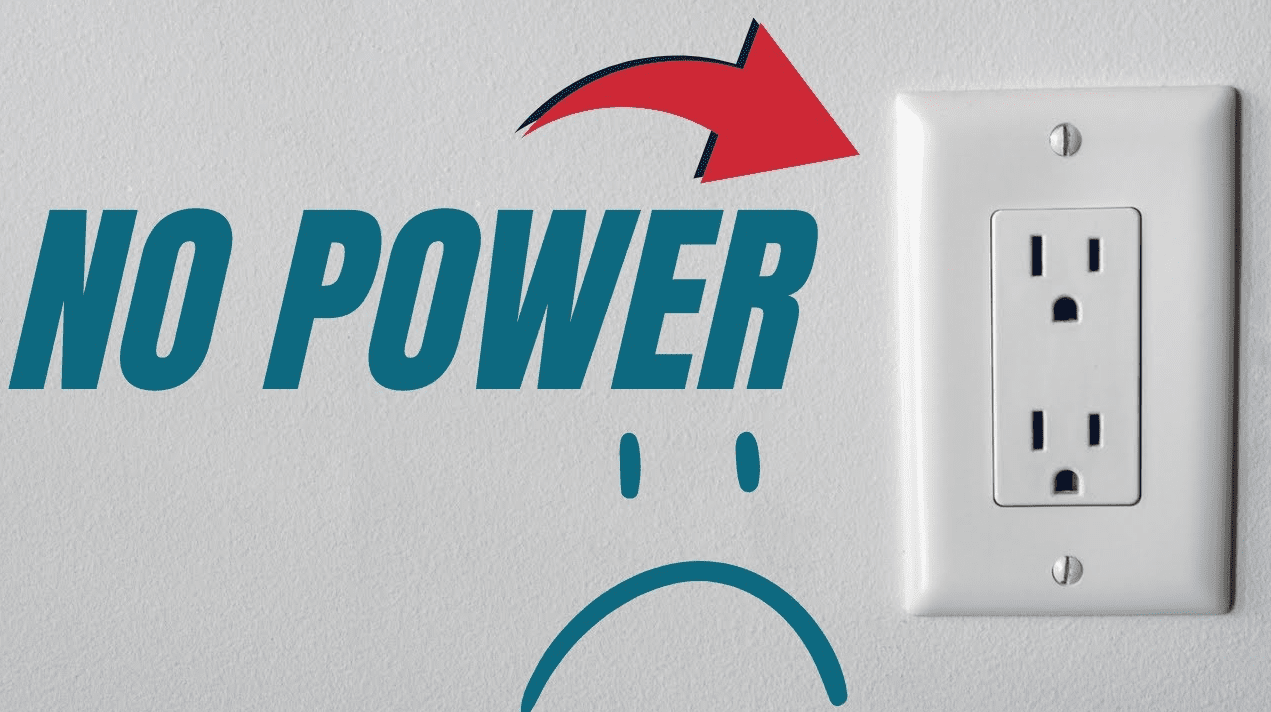Outlet Not Working? DIY Fixes Before Calling an Electrician
September 23, 2025
What to do if outlets are not working.
When you plug in your phone charger, lamp, or coffee maker and the outlet is not working, it can be frustrating. A non-functioning outlet is one of the most common electrical problems homeowners face. While your first instinct might be to search for “Electricians near me,” there are several safe steps you can take before making that call. Understanding the possible causes and troubleshooting methods can save you time, money, and unnecessary stress.
This guide will walk you through the most common reasons an outlet might stop working, what you can try on your own, and when it is time to bring in a professional.
Why Outlets Stop Working
Electrical outlets are designed to be reliable, but like any system in your home, they can fail. Here are some of the most common reasons you might find an outlet not working:
- Tripped circuit breaker: A sudden surge or overload can cause the breaker to shut off power to protect your home.
- Tripped GFCI outlet: Ground Fault Circuit Interrupter outlets are designed to cut power if they detect an imbalance.
- Loose wiring: Over time, connections inside the outlet box can loosen, interrupting the flow of electricity.
- Damaged outlet: Outlets can wear out, especially if they are used frequently or exposed to heat and moisture.
- Faulty device or cord: Sometimes the problem is not the outlet at all but the appliance or cord you are plugging in.
Step 1: Test the Receptacle Device
Before assuming the outlet is the problem, test the device you are plugging in. Try it in another outlet that you know is working. If it fails there too, the issue is with the device or cord, not the outlet. This simple step can save you from unnecessary troubleshooting.
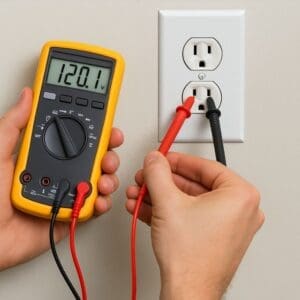
Step 2: Check Other Outlets in the Room
If one outlet is not working, check others nearby. Sometimes multiple outlets are connected to the same circuit. If several outlets are dead, the issue is likely with the breaker or wiring rather than the outlet itself.
Step 3: Inspect the Circuit Breaker Panel
Head to your breaker panel and look for any switches that are out of alignment. A tripped breaker will often sit between the “on” and “off” positions. Flip it fully off, then back on. If the breaker trips again immediately, that indicates a deeper issue that requires professional attention.
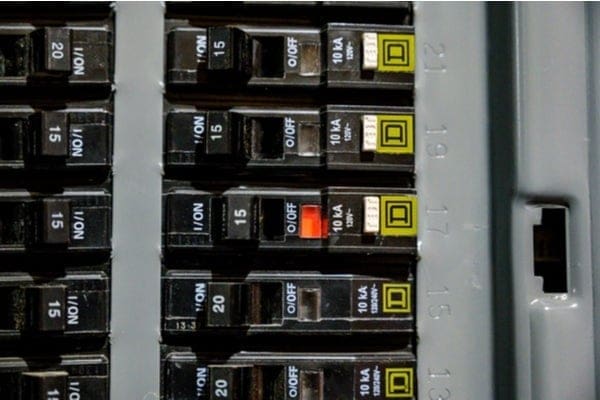
Step 4: Reset GFCI Outlets
Many kitchens, bathrooms, garages, and outdoor areas use GFCI outlets for safety. These outlets have “reset” and “test” buttons. If your outlet is not working, press the reset button. Sometimes one GFCI outlet controls several others in the same area, so check nearby walls for a tripped GFCI.
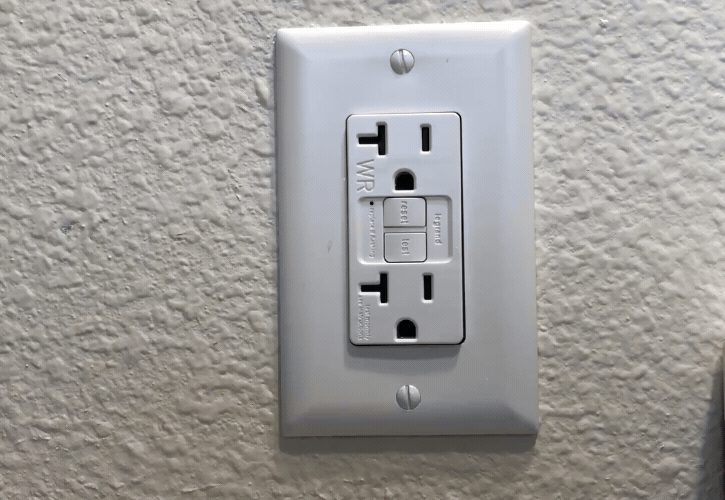
Step 5: Look for Signs of Damage
Examine the outlet for discoloration, scorch marks, or a burning smell. These are signs of overheating or electrical failure. If you notice any of these, do not use the outlet. Call a licensed electrician immediately, as this could be a fire hazard.
Step 6: Test for Loose Connections
If you are comfortable and know how to safely turn off power at the breaker, you can remove the outlet cover and check for loose wires. Outlets with backstabbed connections (wires pushed into holes instead of secured with screws) are more prone to failure. Tightening connections can sometimes restore function, but if you are unsure, it is best to leave this to a professional.
Step 7: Consider Overloaded Circuits
If you frequently run multiple high-powered devices on the same circuit, such as a microwave and toaster oven, the breaker may trip often. Redistributing devices to different outlets or circuits can help. Long-term, an electrician can add dedicated circuits to handle the load. Try to not to be like The Simpsons in this regard.
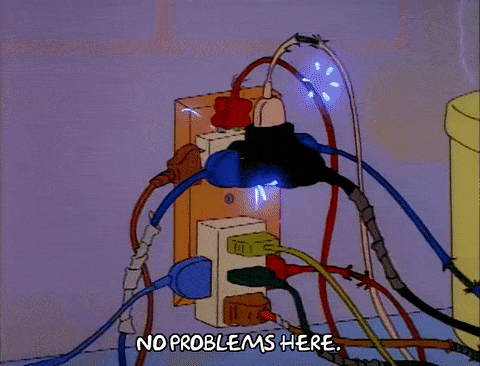
When to Call an Electrician
While many outlet issues are simple to fix, there are times when professional help is necessary. Call an electrician if:
- The breaker continues to trip after resetting.
- You see scorch marks, sparks, or smell burning.
- Multiple outlets in different rooms are not working.
- You are not comfortable working with wiring.
- The outlet still does not work after trying all troubleshooting steps.
Searching for “Electricians near me” will connect you with local professionals who can diagnose and repair the problem safely.
Preventing Outlet Problems
Regular maintenance and safe usage can reduce the chances of an outlet not working in the future. Here are some tips:
- Avoid overloading outlets with too many devices.
- Replace old or damaged cords and plugs.
- Install GFCI outlets in areas with moisture.
- Have an electrician inspect your wiring if your home is older.
- Upgrade outlets to modern, tamper-resistant models for safety.
Common Misconceptions About Outlets
Many homeowners assume that if an outlet is not working, it must be broken. In reality, most issues are related to breakers, GFCIs, or wiring. Another misconception is that replacing an outlet is always a simple DIY task. While it can be straightforward, improper wiring can create serious hazards.
The Cost of Ignoring Outlet Problems
A single outlet not working might seem like a minor inconvenience, but ignoring it can lead to bigger issues. Loose connections can generate heat, which may cause fires. Damaged outlets can also affect other parts of your electrical system. Addressing the problem early is always safer and more cost-effective.
Final Thoughts
When you encounter an outlet not working, resist the urge to panic. Start with simple troubleshooting steps like testing the device, checking breakers, and resetting GFCIs. In many cases, these quick fixes restore power without the need for professional help. However, if the problem persists or you notice signs of damage, do not hesitate to search for “Electricians near me” and schedule a service call.
Your home’s electrical system is too important to take chances with. By knowing what to try before calling an electrician, you can save time and money while keeping your household safe. Fall is the perfect time to prep your home’s electrical system. Whether it’s outlet upgrades, GFCI installs, or circuit inspections—All Circuits Electrical has you covered. Schedule your seasonal checkup today.
